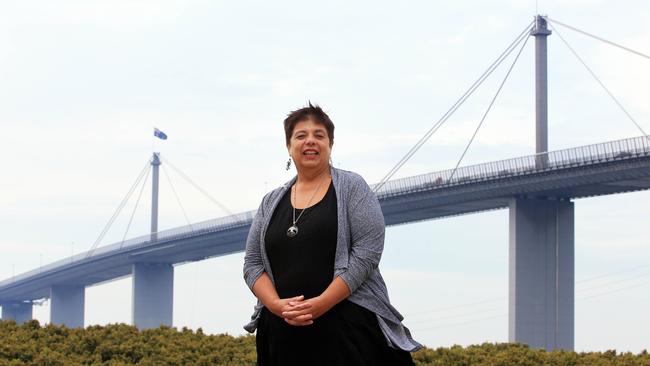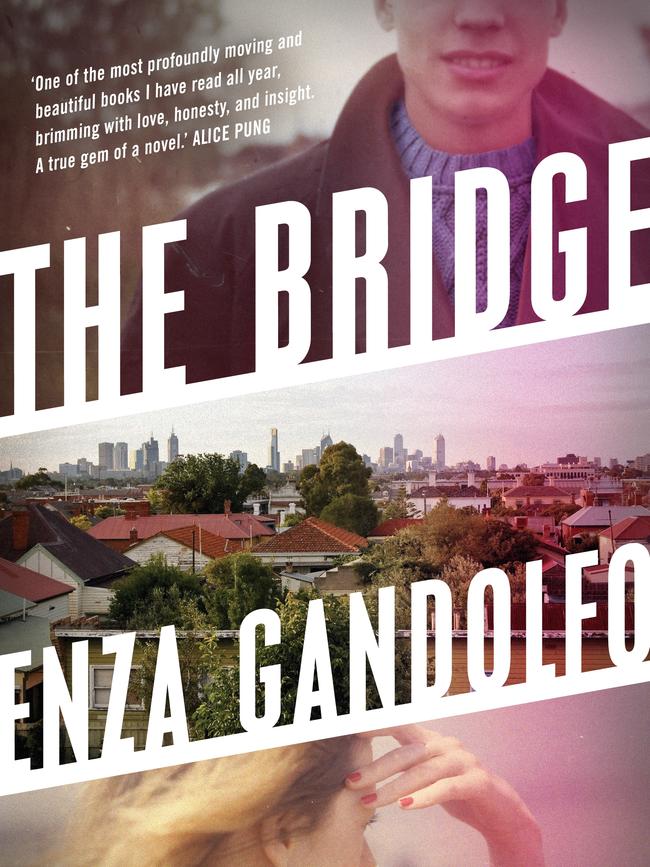Migrant workers’ tale a Stella achievement
Like anyone who lived near the West Gate Bridge, Enza Gandolfo has never forgotten the morning of October 15, 1970.

Enza Gandolfo was in her first year of high school when it happened: the catastrophic collapse of part of the West Gate Bridge being built over Melbourne’s Yarra River.
Like anyone who lived in the area, she has never forgotten the morning of October 15, 1970.
“I was 10 minutes down the road when it happened. I remember that day. I remember the sirens. It had a profound impact on our neighbourhood, where everyone knew someone who worked on the bridge.”
Almost 50 years later, Gandolfo has put that experience into a novel, The Bridge, which last night was shortlisted for the $50,000 Stella Prize for writing by Australian women.
The West Gate disaster, in which 35 workmen died, remains Australia’s worst industrial accident. A royal commission pointed to flaws in structural design and construction methods.
Gandolfo’s main character, Italian-born rigger Antonello, a husband and father, survives the collapse. He emerges from the fall of that 112m, 200-tonne span of the bridge, thinking of it, as people did at the time, as an earthquake or a war zone: “As his eyes adjusted, he could make out the shape of the devastation. It reminded him of those images of wartime European cities in history textbooks. The aftermath of battles lost.
“The ground was mud and slush, shards of glass, crushed concrete, twisted steel, and men half-buried and motionless, men crawling out of the mud and from under the debris.’’
Gandolfo, the daughter of Sicilian immigrants, said she wanted to tell the story of migrants and workers. “My father was a boilermaker and my mother worked in textile factories. As a kid, I was aware of the dangers of working-class work.’’
Her novel is set in two timeframes. In 2009, the main character is Joanne, a promising university student who, drunk behind the wheel, survives a car crash in which others die.
“I think there is a connection there,’’ Gandolfo said. “Both stories are about class, guilt, grief and culpability, and how we as a society punish individuals rather than organisations.”
Gandolfo is one of six writers on the shortlist.
Other novelists in contention are: Jenny Ackland for Little Gods, Melissa Lucashenko for Too Much Lip and Jamie Marina Lau for her debut Pink Mountain on Locust Island.
Completing the shortlist are Canadian-born, French-raised, Sydney-based writer and translator Vicki Laveau-Harvie for her memoir The Erratics and Melbourne writer Maria Tumarkin for Axiomatic, which blends fiction, essays and reportage.
Said chief judge Louise Swinn: “This is an incredibly diverse knot of books, with broad subjects showing that identity is shaped across many continents and informed by many cultures.’’
The winner will be announced on April 9.





To join the conversation, please log in. Don't have an account? Register
Join the conversation, you are commenting as Logout